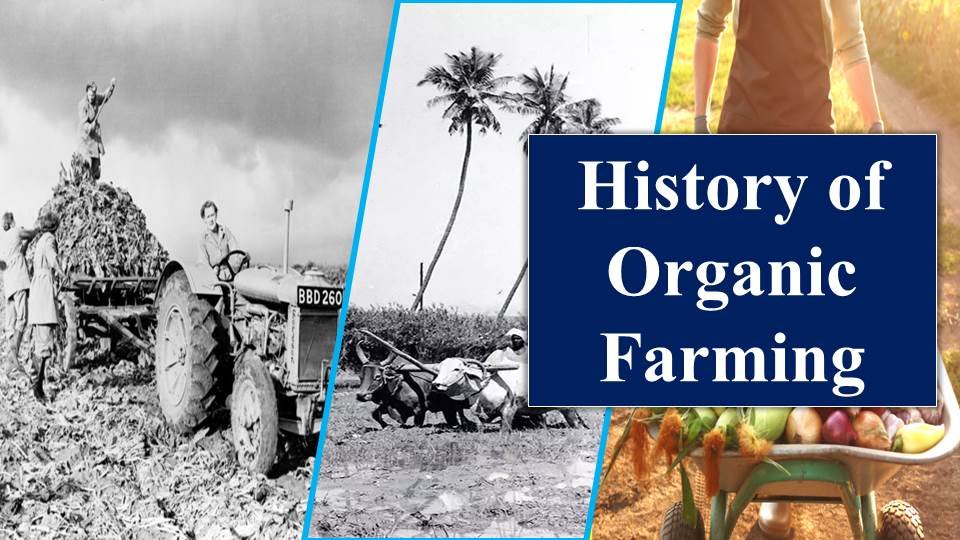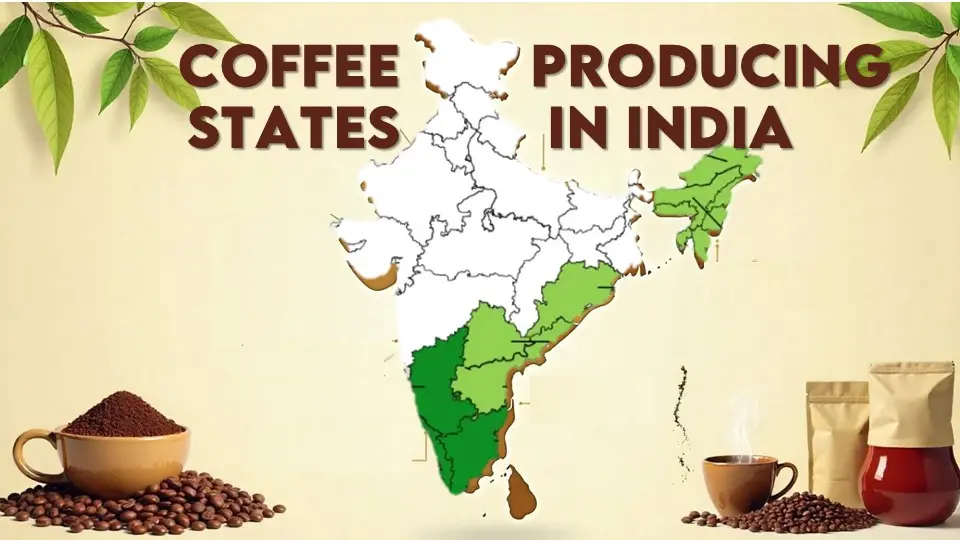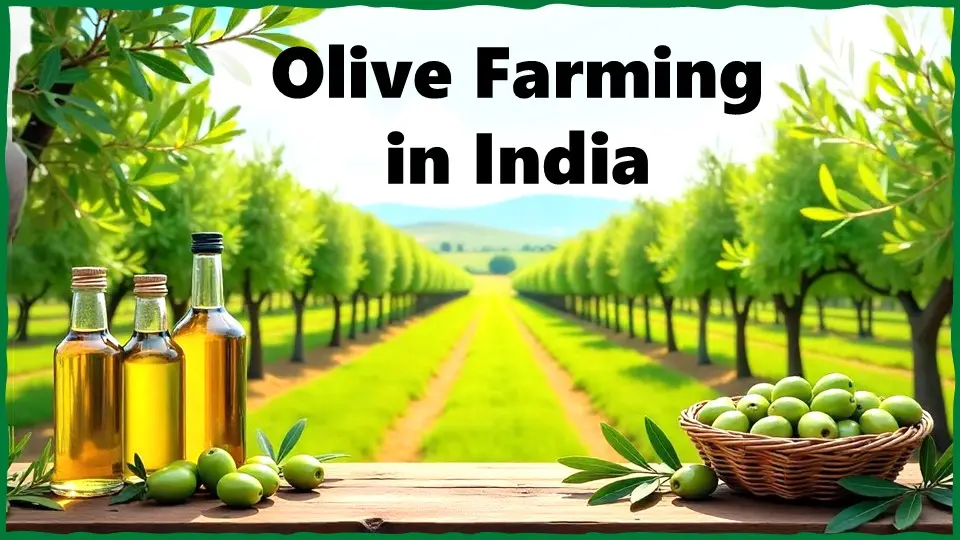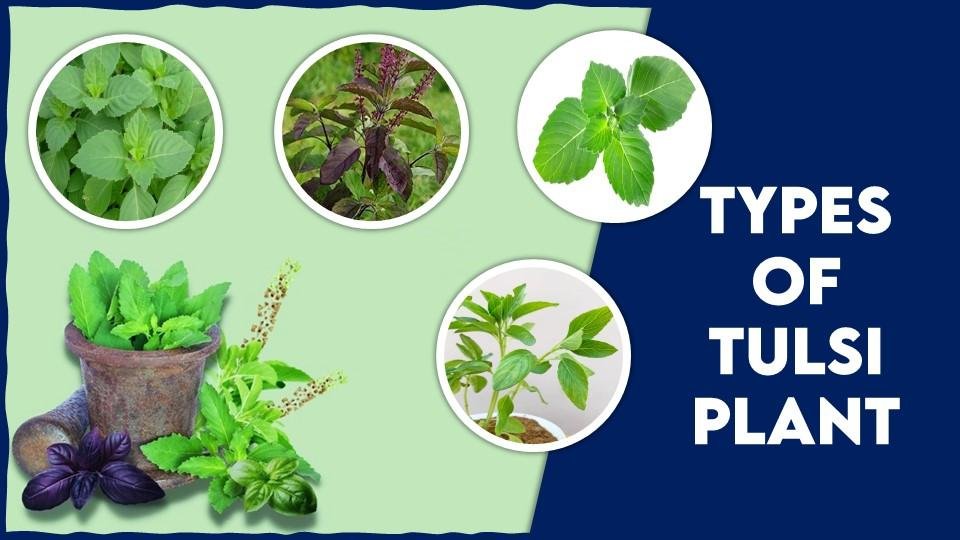History of Organic Farming- Organic farming has a long and varied history, with roots stretching back to ancient civilizations. However, the modern organic farming movement began in the early 20th century and has grown significantly over the last few decades.
What is Organic farming and why is it needed?
Organic farming comprises various techniques like using green manure, vermicomposting, crop rotation, biological pest control, etc. which does not harm the soil, are eco-friendly and increase the fertility of soil.
Organic farming is needed as it improves human health, they have rich taste of organic produce, they provide environmental sustainability and Food security. And, as the organic food industry is growing fast and guarantees high profitability in this industry.
There are several benefits of organic farming such as they reduce soil erosion, recycle animal wastes back into the farm, use fewer pesticides and decreases the nitrate leaching in the surface and ground water.
Read More:
- Should All Indian Farmers Shift to Organic Farming: 3 POVs
- No. 1 Carbon Credit Market: Legendary Kuldeep Singh Cheema
A Brief History of Organic Farming in India
Organic farming has a rich and diverse history that spans thousands of years. From ancient civilizations to modern times, people have recognized the importance of working with nature to produce healthy and sustainable food. Now you are thinking when organic farming started in which year? Read it mindfully to know the answer.
Ancient civilizations:
Throughout history, various cultures have practiced the evolution of organic farming in India. For example- ancient civilizations such as the Greeks, Romans, and Chinese used natural methods to grow crops, including composting and crop rotation.

19th century:
The use of synthetic fertilizers and pesticides began to gain popularity in the mid-19th century. However, several pioneers, such as Sir Albert Howard, recognized the importance of organic farming and began experimenting with composting and other natural methods.
20th century:
In which year organic farming movement started?
The modern organic farming movement began in the early 20th century, with the introduction of biodynamic farming by Austrian philosopher Rudolf Steiner. In the 1930s, J.J. Rodale founded the Rodale Institute and began promoting the benefits of organic farming in the United States.
In the 1960s, organic farming movement began in the year. The organic farming movement gained momentum as a response to concerns about environmental and health impacts of Industrial agriculture.
21st century:
Today, organic farming is a growing movement, with increasing demand for organic products around the world. Many countries have established certification programs to regulate and promote organic farming practices.
Overall, the organic farming history is a story of farmers and activists recognizing the importance of working with nature to produce healthy and sustainable food.
In this article, we will explore the history of organic farming, including its roots, development, and current status-
The Roots of Organic Farming
The roots of organic farming can be traced back to ancient civilizations, including the Greeks, Romans, and Chinese. These cultures used natural methods to grow crops, such as crop rotation, composting, and intercropping. They recognized the importance of maintaining soil fertility and reducing the impact of pests and diseases.
One of the earliest proponents of organic farming was Sir Albert Howard, a British agriculturist scientist who worked in India in the early 20th century. Howard observed that traditional Indian farmers used natural methods to maintain soil fertility and produce healthy crops.
He began experimenting with composting and other organic farming practices and developed the concept of “the law of return”, which states that the health of the soil depends on the nutrients returned to it.
Read More:
- Earn up to 3 lakhs in 3 months through Tulsi Farming
- How to Make Natural Colours From Flowers: Exploring Nature’s Palette
The development of Organic Farming
In the 1920s, Austrian philosopher Rudolf Steiner introduced the concept of biodynamic farming. Biodynamic farming is based on the principles of anthroposophy, which emphasizes the interconnectedness of all living things. Biodynamic farmers use natural preparations, such as compost and herbal teas, to promote soil fertility and plan health.
In the United States, the organic farming movement gained momentum in the 1940s and 1950s, led by J.I Rodale and his family. Rodale founded the Rodale Institute in 1947, which promoted the benefits of organic farming through research and education.
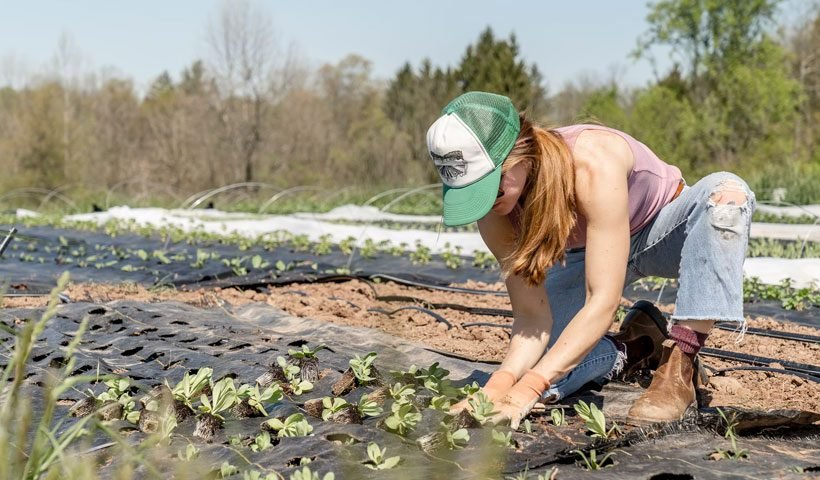
Rodale published the first issue of Organic Gardening and Farming magazine in 1942, which became a leading publication in the organic farming movement.
In the 1960s, the organic farming movement gained wider recognition as a response to concerns about the environmental and health impacts of Industrial agriculture. Rachel Carson’s book Silent Spring, published in 1962 highlighted the dangers of synthetic pesticides and helped to raise public awareness of environmental issues.
In 1972, the US Congress passed the Organic Foods Production Act, which established the National Organic Program and provided standards for Organic Farming and labeling.
The Current Status of Organic Farming
Today, organic farming is a growing movement, with increasing demand for organic products around the world. Many countries have established certification programs to regulate and promote organic farming practices.
The International Federation of Organic Agriculture Movements (IFOAM) was founded in 1972 and has since become a global network of organic farming organizations.
Organic farming has many benefits, including promoting soil health, reducing the use of synthetic pesticides and fertilizers, and promoting biodiversity. Organic farms also tend to be more labor-intensive, which can provide opportunities for rural communities and support local economies.
Features of Organic Farming-
- Uses Bio-fertilizers which are eco-friendly and renewable source of plant nutrients to supplement the fertilizers for sustainable agricultural development.
- Due to Organic farming, soil is nourished because of using green manure, compost, natural fertilizer.
- In Organic system, natural crop production increases crop fertility and maintain crop diversity.
Read More:
- Sana Khan Vermicompost: Top Agri Startup from Animal Waste
- Cultivating Greener Tomorrow: TBOF’s Success in Sustainable Agriculture
Conclusion
The history of Organic farming is a story of farmers and activists recognizing the importance of working with nature to produce healthy and sustainable food. From ancient civilizations to modern times, people have developed and refined organic farming practices to promote soil health, biodiversity, and human health.
Today, organic farming is a growing movement, with increasing demand for organic products and recognition of the importance of sustainable agriculture.
Latest Post…
- How to Create Modern Commercial Greenhouse Agriculture
- How to Grow Oyster Mushrooms at Home in India
- Top Coffee Producing States in India
- Saffron Farming at Home: Amazing Guide for You in Steps
- Aloe vera farming in India – Cost, Market Trends and Profits
- Olive Farming in India: High Demand Oil Crop in 2025
- How Does Vertical Farming Work?
- Top 10 Modern Agriculture Tools used in Agriculture
- Types of Tulsi Plant in India

